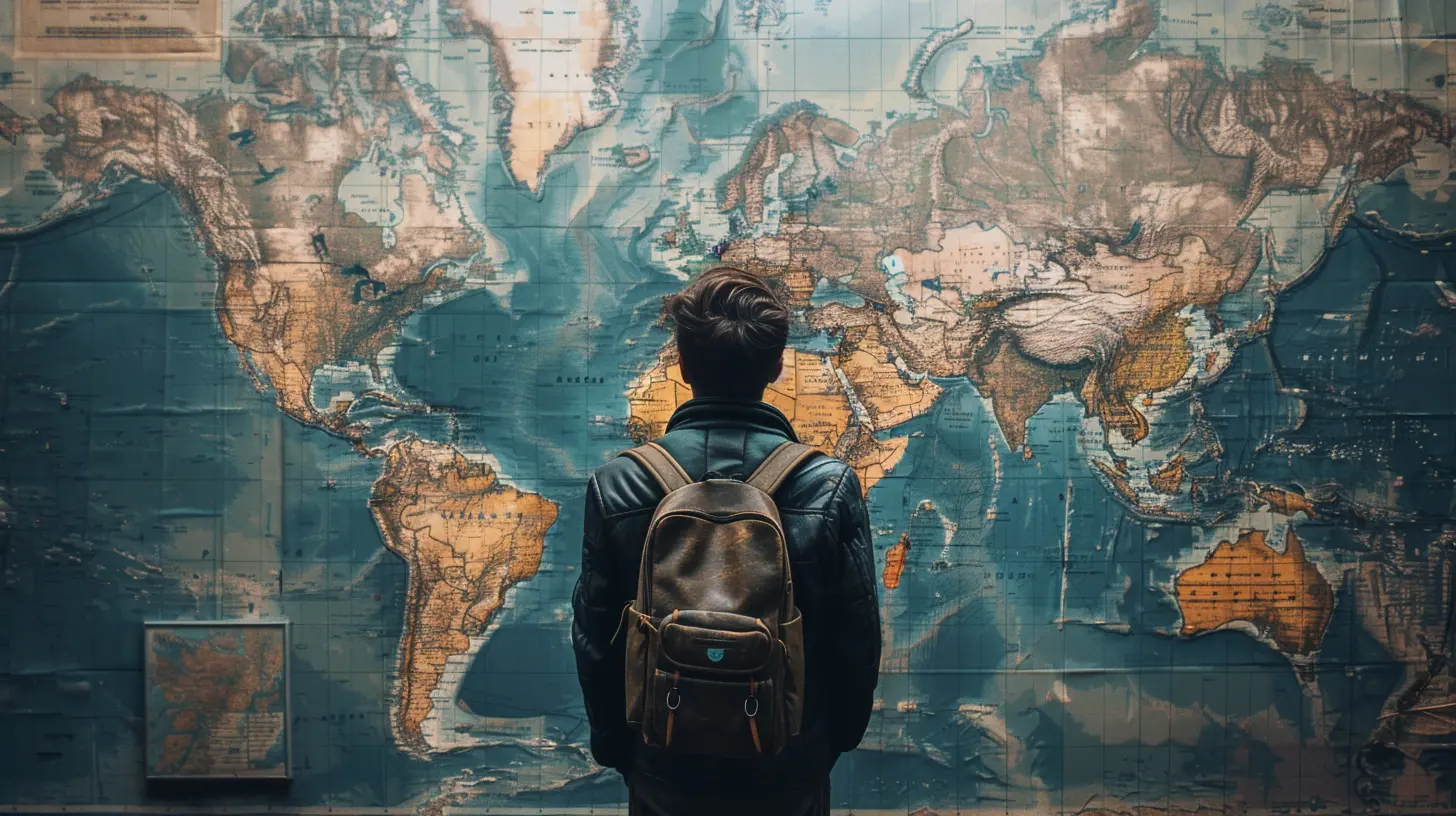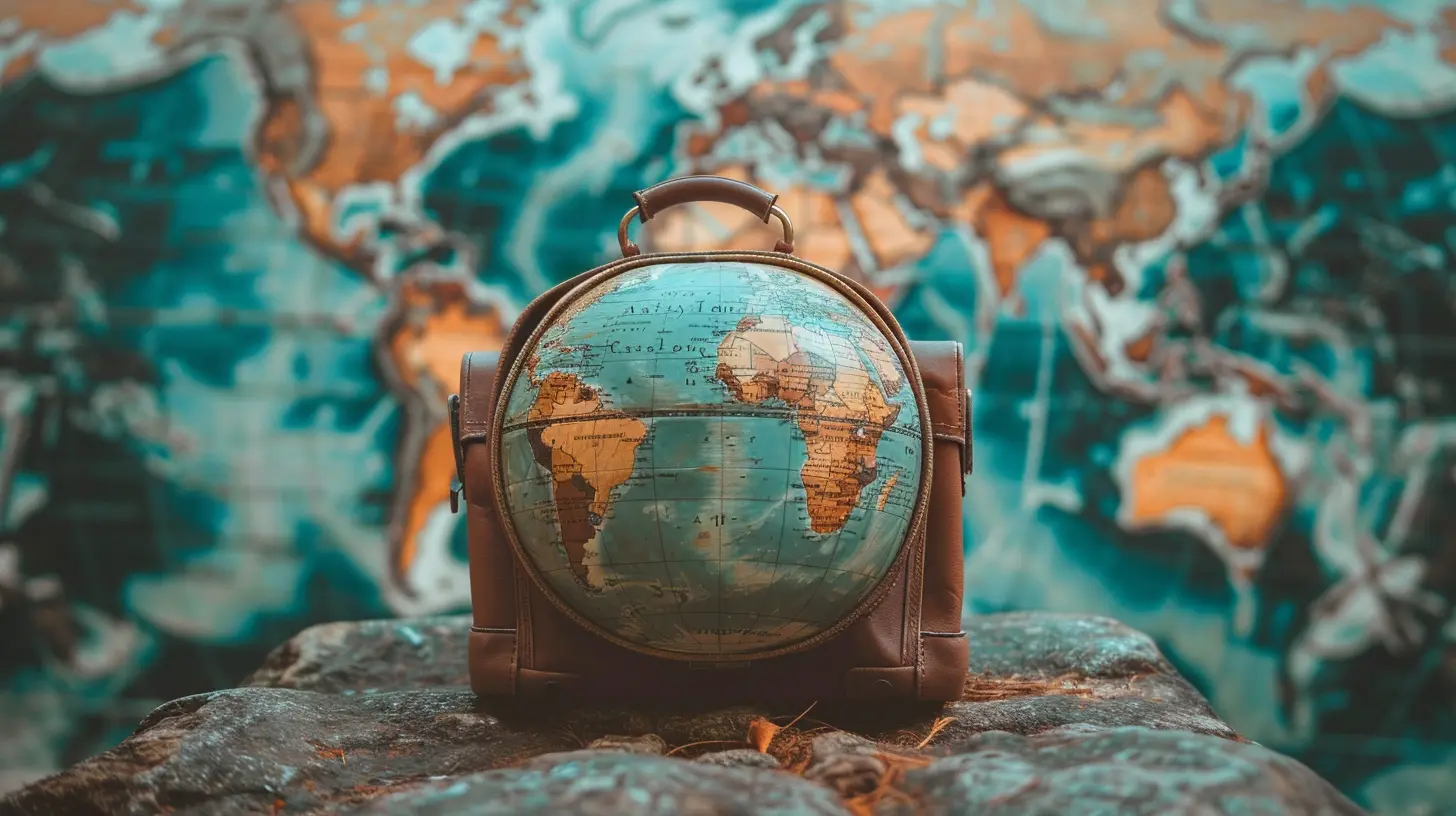Navigating Language Barriers: Simple Hacks for Easy Communication Abroad
21 August 2025
Ever been in a situation where you stared blankly at a waiter, hoping they'd magically understand your wildly creative hand gestures? Yep, we’ve all been there. Traveling to a foreign land is exhilarating, but let’s be real—language barriers can throw a wrench into your smooth travel plans. The good news? You don’t need to be fluent in five languages to get by. With a little preparation and a few clever hacks, you'll communicate like a local in no time.
In this guide, we'll show you simple yet effective ways to break down those communication walls, connect with locals, and get the most out of your trip—without pulling out your hair. Ready to turn those awkward moments into confident conversations? Let’s dive in.
Why Language Barriers Don’t Have to Ruin Your Trip
First things first—don’t let language fears hold you back from exploring the world. Most travelers worry they won't be understood or might offend someone. But here's the truth: people are generally patient and kind, especially when they see you're trying.It’s not about perfect grammar or pronunciation; it’s about effort and connection. A few basic words, sincere gestures, and a smile go a long way. So, instead of dreading interactions, embrace them. Each one is a chance to learn something new.
1. Learn Key Phrases Before You Go
You don’t need a Ph.D. in French to order a croissant, but knowing a few go-to phrases can make all the difference. Locals instantly appreciate someone who tries, even if you butcher a word or two.Here are a few must-know phrases in any language:
- Hello / Goodbye
- Please / Thank You
- Do you speak English?
- I don’t understand.
- Where is the bathroom?
- How much does it cost?
Pro Tip: Use a free language app like Duolingo or Memrise to practice. Even 10 minutes a day can give you a head start.
2. Download Offline Translation Apps
While Wi-Fi isn’t always reliable, your phone can still be your lifeline. Translation apps like Google Translate or iTranslate can be used offline—just download the languages ahead of time.How to use them smartly:
- Text translation: Type what you want to say and let your phone do the talking.
- Camera translation: Point your phone's camera at menus or signs for instant translation.
- Conversation mode: Speak into the app and let it translate both ways in real-time.
It’s like having a digital interpreter in your pocket (minus the awkward pauses).
3. Use Visual Communication
When words fail, visuals come to the rescue. Think of it as playing charades—only with higher stakes and better souvenirs.Here’s how to master the art of visual communication:
- Point to maps or pictures: Show what you need instead of trying to explain.
- Keep a photo album on your phone: Include things like hotel address, favorite dishes, or public transport icons.
- Use universal gestures: Thumbs up, nodding, or pointing. Just double-check local customs—some gestures don’t mean what you think they do!
Humans are intuitive. Put a little effort into showing rather than telling, and you’ll be surprised how far visuals take you.
4. Carry a Small Phrasebook or Cheat Sheet
Old-school, yes—but still gold. A pocket-sized phrasebook or a homemade cheat sheet with essential terms can save the day. It's especially helpful in markets, restaurants, or rural areas with poor connectivity.Want to personalize it? Write down:
- Your hotel’s name and address
- Emergency contacts
- Numbers 1–10
- Local transport terms (bus, train, taxi)
- Food preferences or allergies (e.g., “No peanuts” or “I am vegetarian”)
Think of it as your linguistic lifeline. Pull it out when your brain freezes or Wi-Fi fails you.
5. Speak Slowly and Clearly—Not Louder
We’ve all seen that tourist yelling “WHERE... IS... THE... BUS?” thinking volume is the issue. Spoiler alert: it’s not.Instead, slow down, simplify your words, and avoid slang or idioms. “Where is the restroom?” is clearer than “Where’s the john?”
Locals are more likely to understand you if you’re calm and clear. And if they still don’t get it, don’t panic. Smile, gesture, and try rephrasing. It’s all part of the adventure!
6. Use Body Language Wisely
Body language is the world’s oldest form of communication—and it’s still one of the most powerful. In fact, over 70% of communication is nonverbal.Here’s how to use it to your advantage:
- Smile often – It’s universal and disarming.
- Maintain eye contact – Shows sincerity and helps build trust.
- Use your hands – Gesturing can fill in verbal gaps.
- Watch their body language too – You’ll pick up cues about confusion, agreement, or concern.
Just be mindful that body language varies by culture. For example, a thumbs-up might be rude in some countries. So, a little cultural research goes a long way.
7. Stay in Language-Friendly Accommodations
When booking your stay, choose guesthouses and hotels where staff speak English or offer translation services. This simple move can smooth your overall experience.Many travel platforms allow you to filter options by language spoken. Plus, multilingual hosts can help with directions, ordering food, or giving cultural tips—which is invaluable if you're staying off the tourist trail.
Bonus Tip: Ask your hotel to write down key instructions or destinations in their language. Handing a taxi driver a note that says your next stop in the local language? Game-changer.
8. Join Language or Travel Forums Before You Go
Online communities like Reddit, TripAdvisor, or Facebook travel groups are gold for real-time advice. You can:- Ask for region-specific language tips
- Get recommendations for translation apps or phrasebooks
- Connect with locals or fellow travelers who’ve been there
Chances are, someone’s already been where you’re going—and they’ve made the language mistakes so you don’t have to.
9. Take a Local Language or Cultural Class
If you’re staying for more than a few days, why not sign up for a quick local language or culture workshop? Many cities offer short-term classes for tourists—fun, informal, and incredibly enlightening.You’ll learn more than just words. You’ll understand social norms, humor, and even body language. Plus, it’s a great way to meet locals and fellow travelers.
Learning the basics of a language while sipping local wine? That’s multitasking at its finest.
10. Keep an Open Mind and a Good Sense of Humor
Let’s be honest—there will be misunderstandings. Sometimes hilarious, sometimes frustrating. But those moments often become your best travel stories.So roll with it. Laugh when you ask for "water" and get "noodles." Apologize when needed. Be patient. Most importantly, keep your cool.
The more relaxed you are, the smoother your interactions will be.
Remember, the goal isn’t to master a language overnight—it’s to connect with people, experience new cultures, and grow along the way.
Final Thoughts: It’s All About Connection, Not Perfection
At the end of the day, navigating language barriers is less about the words and more about the willingness to connect. Whether you’re ordering street food in Bangkok or asking for directions in Rome, the goal is to share a human moment.So pack your phrasebook, download those apps, and smile your way through any misunderstanding. The world isn’t just waiting to be seen—it’s waiting to be spoken to.
And hey, even if your pronunciation is off, the memories you make will be right on point.
Safe travels—and don’t forget to say “thank you” in the local lingo!
all images in this post were generated using AI tools
Category:
Travel TipsAuthor:

Kelly Hall
Discussion
rate this article
1 comments
Maverick McMurtry
Great tips! Your practical hacks for overcoming language barriers make traveling so much easier. Emphasizing basic phrases and using translation apps can truly enhance the adventure. Thanks for sharing!
August 28, 2025 at 3:59 AM

Kelly Hall
Thank you for your kind words! I'm glad you found the tips helpful for your travels. Safe adventures!


